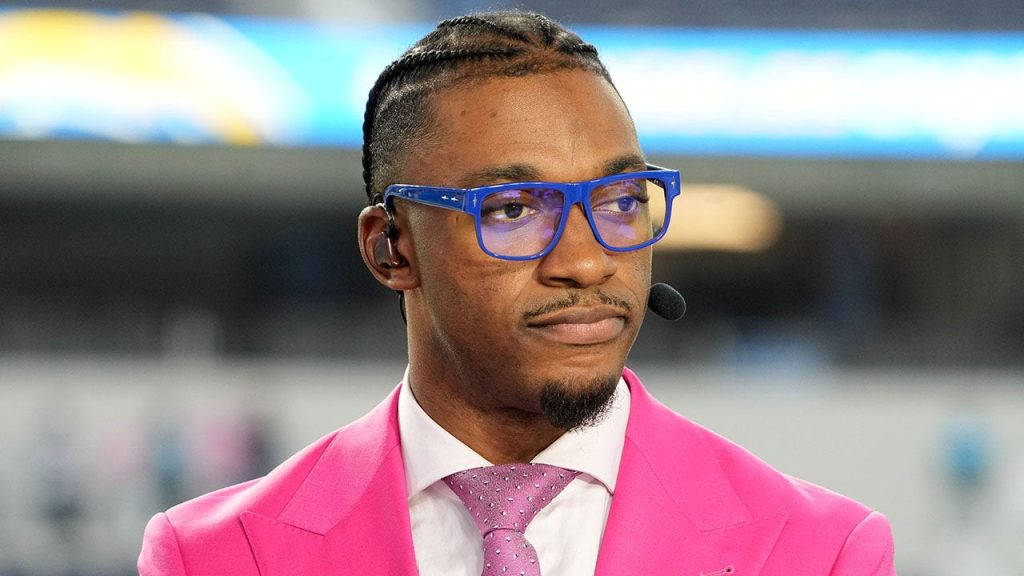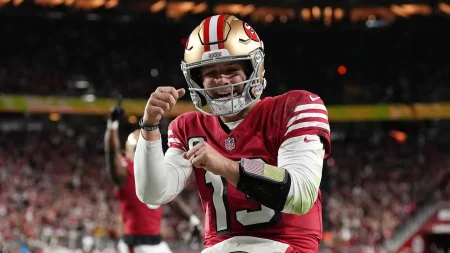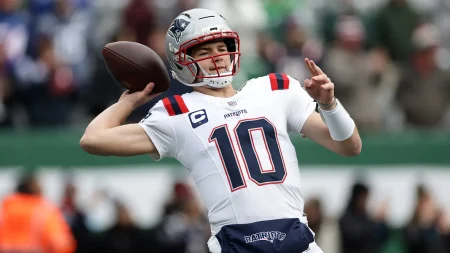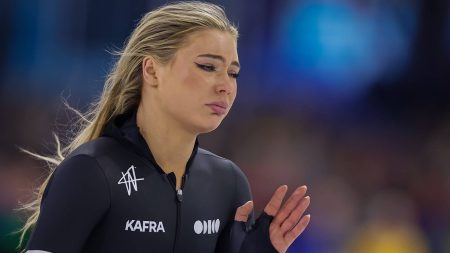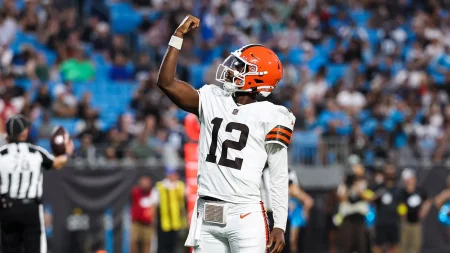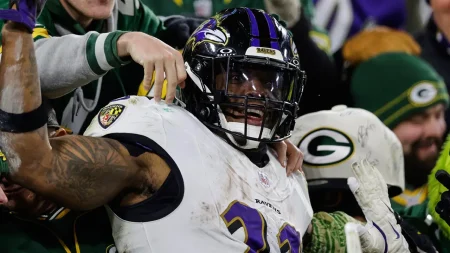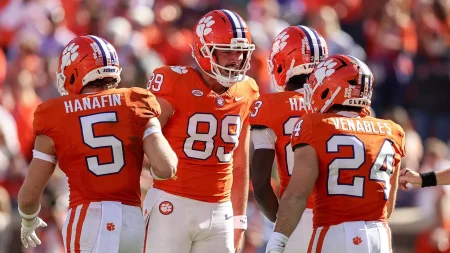Robert Griffin III’s critique of Justin Herbert’s playoff performance sparked a controversy, quickly diverting attention from the Chargers’ quarterback’s struggles to a discussion about race and media bias. Griffin’s post on X, formerly known as Twitter, called for the media to hold Herbert accountable similarly to how they scrutinize Lamar Jackson and Dak Prescott, two Black quarterbacks who have also faced criticism for their postseason records. While the intention may have been to highlight a perceived double standard in media coverage, the execution backfired, with many accusing Griffin of deflecting criticism from Herbert’s subpar performance and inappropriately injecting race into the conversation. This incident underscores the sensitivities surrounding discussions of race and sports, particularly when comparing the treatment of Black and white athletes.
The crux of the controversy lies in the perceived disparity in media treatment of quarterbacks based on their race. Griffin’s invocation of Jackson and Prescott suggests a belief that Black quarterbacks are held to a higher standard and face harsher criticism for their playoff shortcomings compared to their white counterparts. While some may argue that all quarterbacks face intense scrutiny, particularly in high-stakes playoff games, others contend that racial bias influences the narrative and tone of media coverage. This perceived bias contributes to a narrative that Black quarterbacks are inherently less capable of leading their teams to championship success, a narrative that perpetuates harmful stereotypes and overlooks the myriad factors contributing to wins and losses in professional football.
Analyzing the playoff records of the quarterbacks mentioned adds further complexity to the debate. Herbert, in his two playoff appearances, holds a 0-2 record, mirroring the early struggles of many young quarterbacks. Jackson, while boasting a more extensive playoff resume, stands at 3-4, having reached the AFC Championship game but falling short of a Super Bowl appearance. Prescott, with a 2-5 playoff record, has also faced criticism for the Cowboys’ inability to advance deep into the postseason. While these records can be used to support arguments about each quarterback’s playoff prowess, or lack thereof, they also highlight the team-dependent nature of the sport and the numerous factors, beyond the quarterback’s performance, that contribute to playoff success or failure.
Griffin’s attempt to draw a parallel between Herbert’s situation and the experiences of Jackson and Prescott raises questions about the validity of such comparisons. While all three quarterbacks have faced criticism for their playoff performances, their individual circumstances and career trajectories differ significantly. Herbert, still early in his career, is navigating the challenges of playoff pressure and adapting to the heightened expectations that come with leading a franchise. Jackson, known for his dynamic playmaking ability, has faced questions about his passing consistency and ability to elevate his team in crucial moments. Prescott, having battled injuries and inconsistent team performance, has also been under the microscope for his ability to deliver in the playoffs. Attempting to draw a direct comparison between these quarterbacks simplifies a complex issue and fails to acknowledge the unique context surrounding each player’s career.
The backlash against Griffin highlights the delicate nature of discussions about race and sports. While the issue of racial bias in media coverage is a legitimate concern, Griffin’s approach was widely perceived as misdirected and counterproductive. By focusing on race rather than on Herbert’s on-field performance, he inadvertently diverted attention from the legitimate criticisms of the Chargers’ quarterback. This incident underscores the importance of nuanced and thoughtful discussions about race and sports, avoiding generalizations and acknowledging the individual experiences of athletes.
Furthermore, this controversy underscores the ongoing debate surrounding the evaluation and criticism of quarterbacks in the NFL. The quarterback position, arguably the most scrutinized in all of professional sports, carries immense pressure and expectation. While performance-based critiques are essential for analyzing player development and team success, the tendency to reduce complex team dynamics to the performance of a single player can be misleading and unfair. This incident serves as a reminder of the need for balanced and contextualized analysis when evaluating quarterbacks, considering the various factors that contribute to their success or failure, rather than resorting to simplistic narratives or racially charged comparisons.




